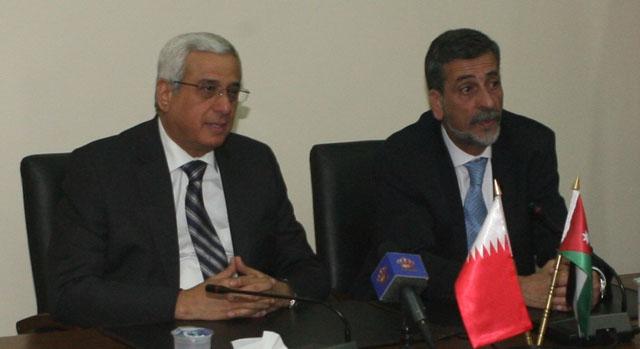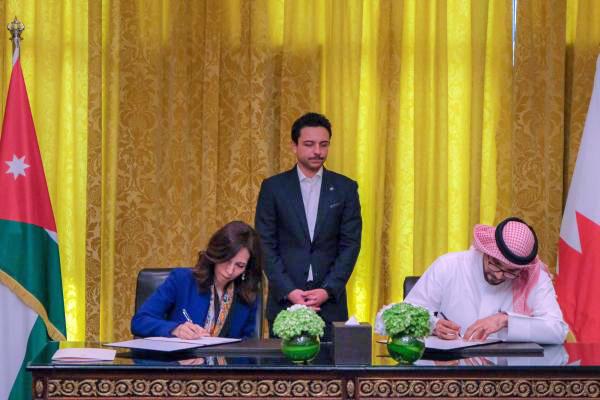You are here
Jordan to share political development experience with Bahrain
By Dana Al Emam - Feb 03,2014 - Last updated at Feb 03,2014

AMMAN — Jordan will share its experience in political development with Bahrain under a memorandum of understanding signed on Monday.
The memo, signed by Minister of Political and Parliamentary Affairs Khaled Kalaldeh and Nabeel Al Hamer, head of the board of trustees of the Bahrain Institute for Political Development, is designed to boost cooperation in setting political policies and strategies.
The ministry will provide qualified staff to implement programmes that develop laws to expand the political involvement of women, youths, local communities and professional associations in Bahrain, according to the memo, which is valid for two years.
Moreover, the ministry will provide the Bahrain institute with political consultations, and the two sides will cooperate in establishing a related library and an e-library in Bahrain.
The institute was established in 2006 with the aim of developing political activities in Bahrain, according to Hamer.
On the sidelines of the signing ceremony, the Bahraini official met with secretaries general of Jordanian political parties and briefed them on the political situation in his country.
“There are no laws that allow political activity through parties in Bahrain,” he said, noting that political associations were allowed in 2001 as part of a royal reform project.
Similar to the situation in Jordan, any political movement must be peaceful, seek to benefit the public interest and have a national basis, Hamer said.
“However, there are political associations that might become affected by or adopt ideas from outside Bahrain, which do not benefit the national political scene,” he said, adding that such acts are not acceptable.
Therefore, Bahraini King Hamad Bin Issa Al Khalifa and civil community institutions sought to control this issue by launching national dialogue in which people across the Bahraini spectrum could participate, he said.
Hamer listened to the experiences and suggestions of political party representatives.
Abdul Hadi Maharmeh from the National Labour Party suggested changing political associations in Bahrain into “political parties” for a better description of what they do.
The state, he added, should not tighten its security grip on political party members by tracing or threatening them.
Ahmad Shunnaq from the National Constitutional Party said it is healthy for any country to have political pluralism without having a religious or ethnic affiliation.
“Some still think that joining a political party means rebelling against the regime,” he said.
Related Articles
Senate President Abdur-Ra’uf S. Rawabdeh on Tuesday met with Nabeel Al Hamer, the Bahraini king’s adviser on information affairs, and discussed prospects for further bilateral cooperation, especially at the parliamentary level.
Foreign Minister Nasser Judeh on Monday received Adviser to the King of Bahrain for Information Affairs Nabeel Al Hamer and discussed bilateral relations and the latest regional developments.
AMMAN — HRH Crown Prince Hussein on Saturday, during his visit to Bahrain, attended a signing ceremony for two memoranda of understanding (M
















